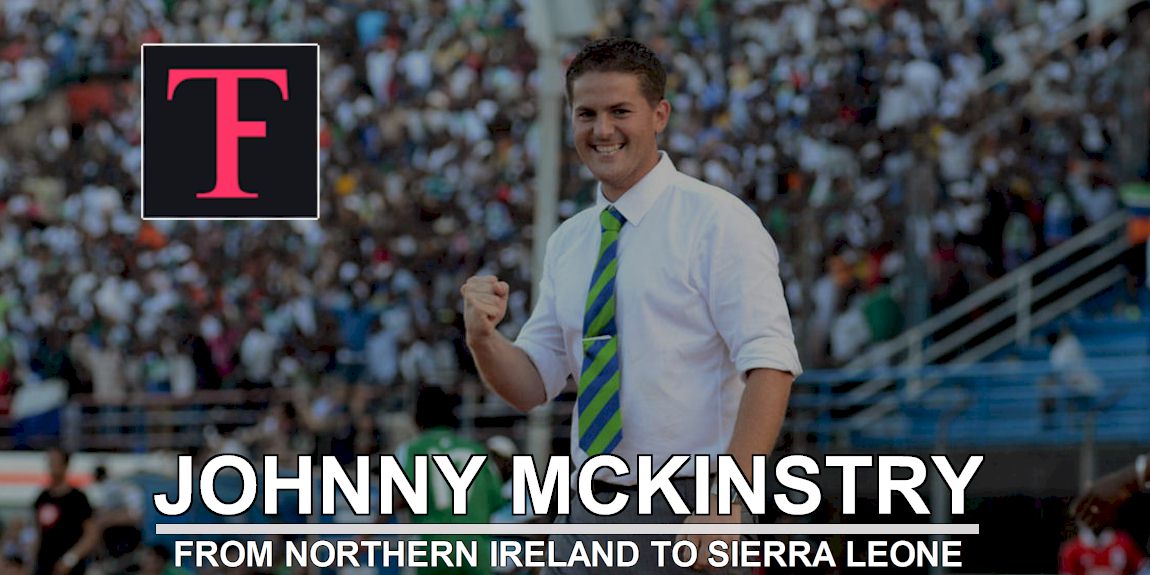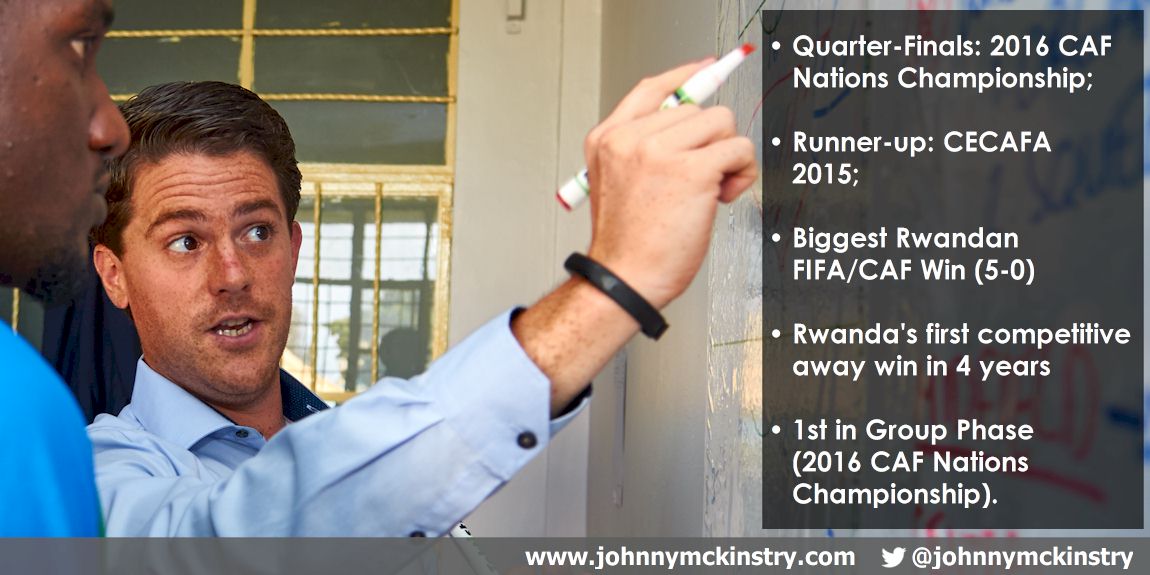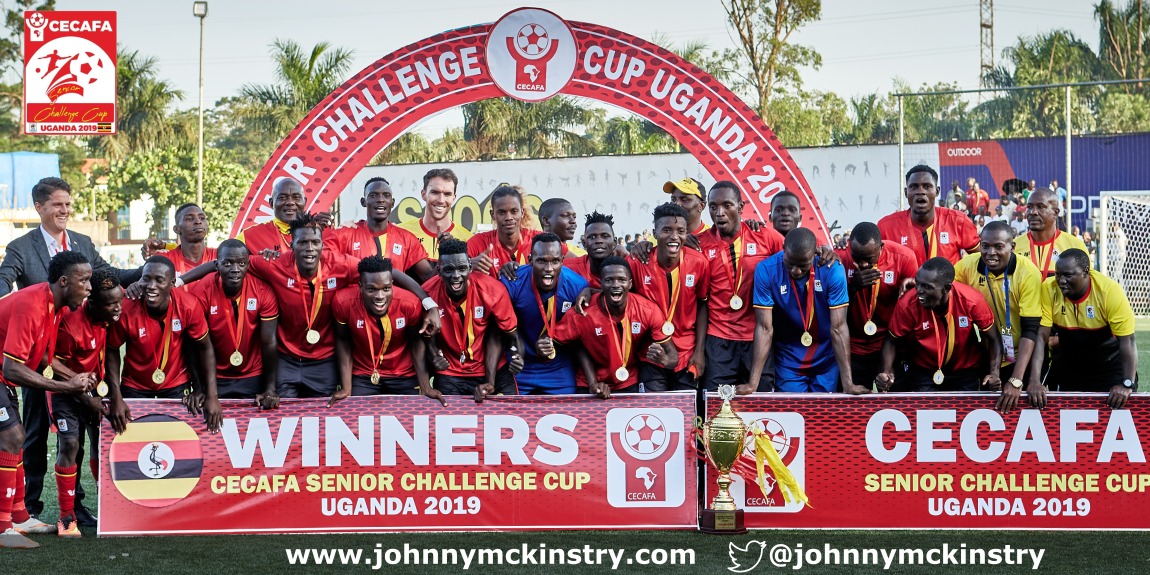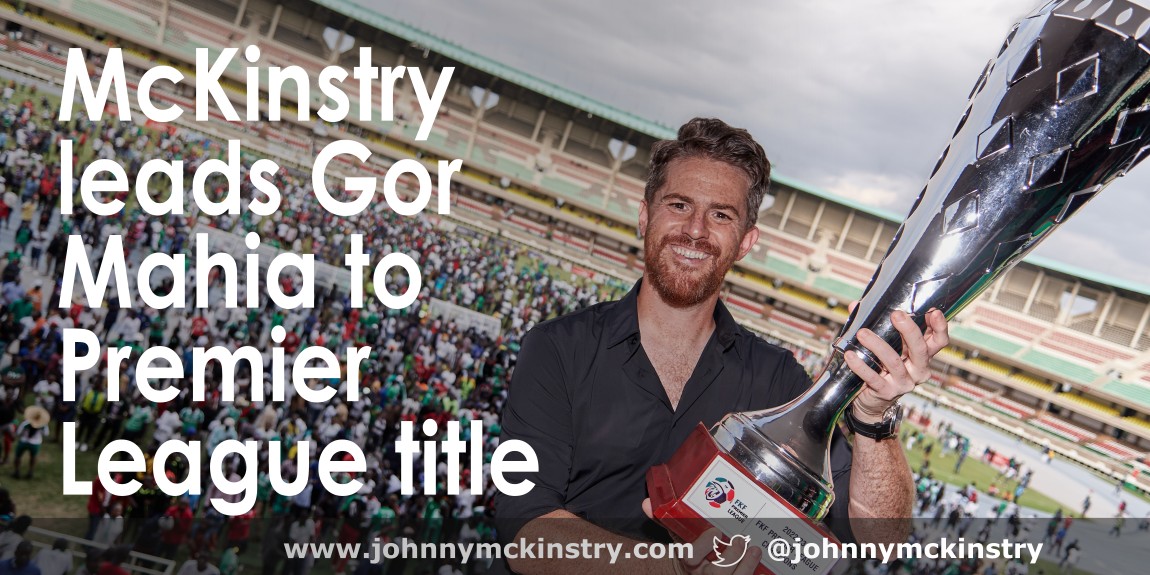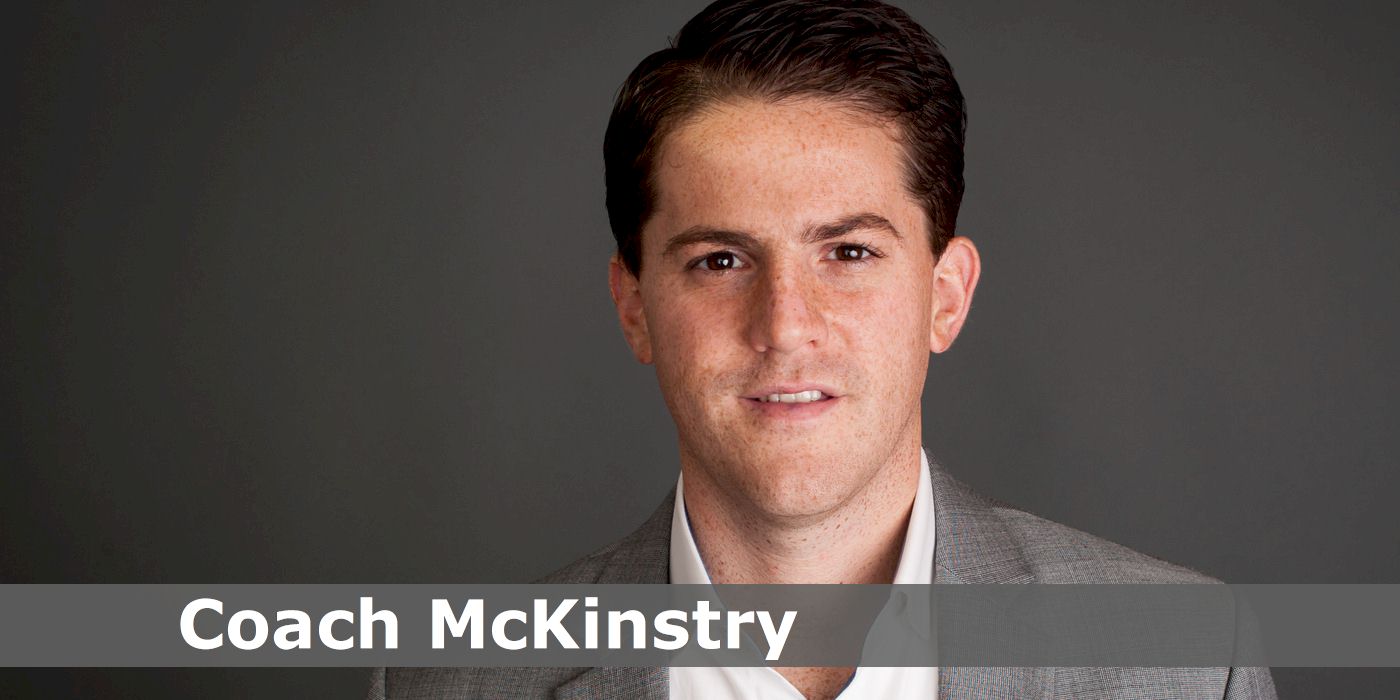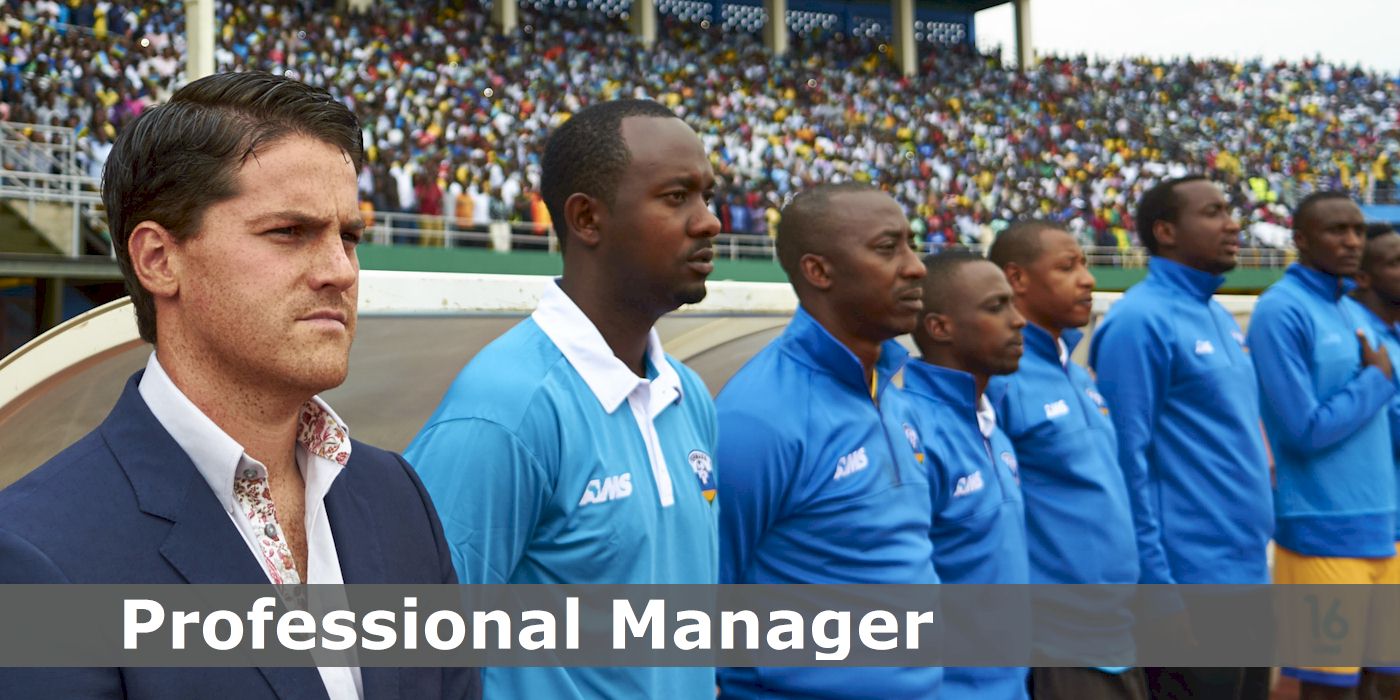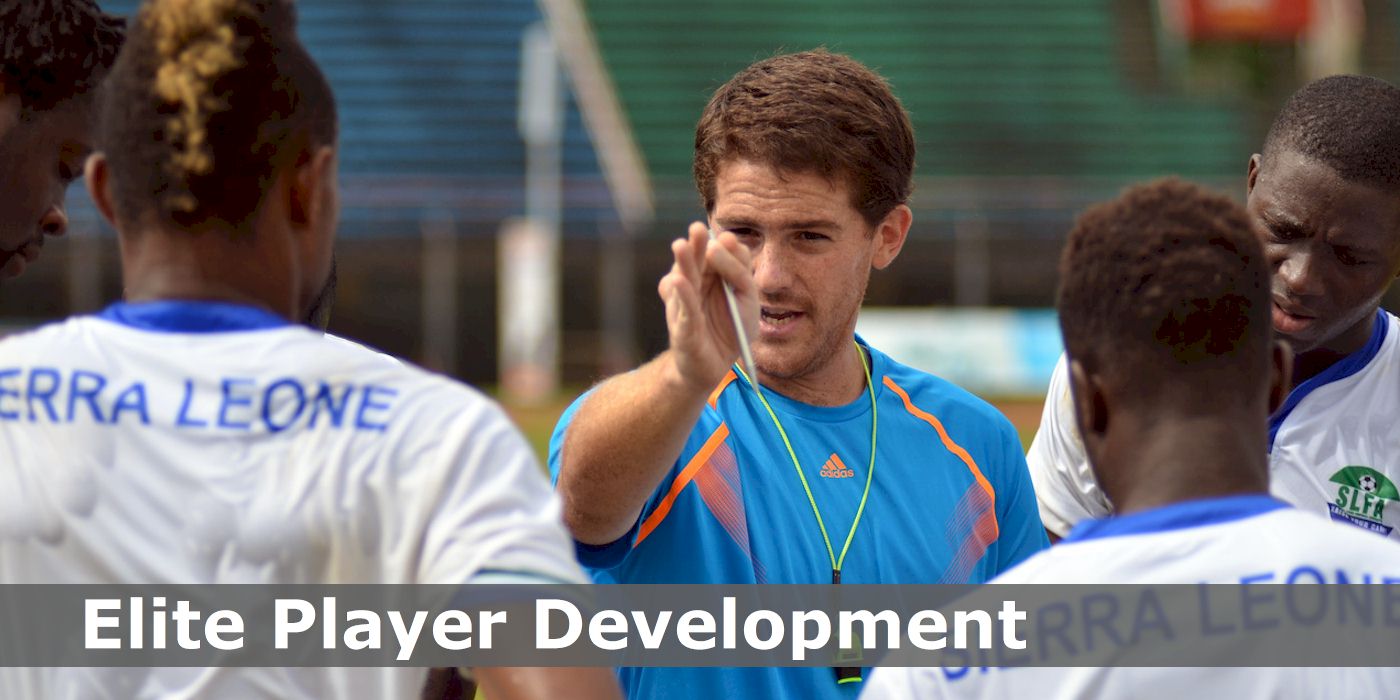Manager of the Sierra Leone national team at the age of just 27, Johnny McKinstry is one of football's brightest young coaching talents. 'These Football Times' talk to the Northern Irishman about his journey....
By Omar Saleem, @omar_saleem Source: These Football Times
It’s 3200 miles from Lisburn, Northern Ireland, to Freetown, the capital of Sierra Leone, and it’s a journey that few Northern Irishmen can ever claim to have taken. Johnny McKinstry, one of football’s brightest young coaching talents, bucked that trend when in 2013 he was appointed in one of African football’s most challenging management roles. Replacing experienced Swede Lars-Olof Mattsson, the then 27-year-old former Red Bull New York coach took his first steps on a journey that is destined for the very top.
From his days as a youngster studying the game in his native Northern Ireland to his role now as Academy Manager at the Craig Bellamy Foundation, McKinstry has always had coaching on his mind. It’s little surprise then that he followed his dream and pursued a career that has taken him to three continents before the age of 30. But why Sierra Leone? And how does a young coach with no experience of professional management find his way to Africa, leading one of the continents true sleeping giants?
“I first came to Africa in 2006 when I was invited to travel to Ghana by the Right to Dream Academy. They were looking for a new Technical Director and given I had just been named Grassroots Coach of the Year by Manchester United; they thought I would be a good fit. At the time I was 21 and still had a year of university left to complete but I travelled to Ghana for six weeks, coached, got to know the organization, and largely completed an extended job interview, or ‘audition for the role’ if you will. In the end it was decided that whilst the coaching came naturally to me, I wasn’t quite ready for the management side of the role. I agreed with the assessment. I wasn’t ready to run a project such as that."
“The experience was to have a lasting impact, however. Firstly, my time spent in country saw me working on a daily basis with players who would go on to play at the very top level such as Majeed Waris and Mohamed Abu to name a couple, who went on to play at World Cup and African Nations Cup respectively, as well as ply their trade in leagues such as Ligue 1 and La Liga. I would again work with these players in 2010 when I returned as interim Head Coach prior to taking up my role with the Craig Bellamy Foundation."
“Further ahead, the people who own and operate the academy in Ghana were brought in as consultants to oversee the set-up of the Craig Bellamy Foundation and Academy in Sierra Leone. The link developed in 2006 and maintained since was then to come full circle when I was contacted regarding my interest in the new project. After a number of discussions I decided that I would trade in New York, and my role with the New York Red Bulls, for the challenge in West Africa.”
In many respects, coaching in Africa has similarities to working Major League Soccer and wider American football. The players are raw and they often require technical development above all else. So what were his thoughts on the quality of young players coming through the ranks in Africa?
“The technical and athletic quality of young players in Sierra Leone and West Africa is very high. In the environments that these kids grow up in they have to deal with a bobbling, bouncing ball every time they play so they develop a first touch second to none. It is no surprise that players like Didier Drogba are able to bring the most difficult of passes under control. It has been ingrained into young players from such an early age."
“That is not to say, however, that every young player is a superstar in waiting however the character and determination of the ones that do make it sets them apart. When you speak to many African players who have made it to the professional ranks, their determination and value systems are usually so developed. They know where they come from, and they are playing for more than themselves. This willpower has helped bring them through the most challenging of environments.”
It’s perhaps unsurprising to hear such thoughts; Drogba himself is credited with playing a vital role in bringing peace to the Ivory Coast after years of civil unrest. Upon qualifying for the 2006 World Cup, he made an emotional plea to the people of his home nation, asking them to lay down their arms. Despite fame and fortune, Drogba is the epitome of an African footballer remembering his roots and playing a key role in improving the lives of people in his homeland.
Closer to home, Mohamed Kallon, the ex-Inter Milan and AS Monaco striker, set up a children’s foundation, helping youngsters tackle the harshness of life on Sierra Leone’s streets. As a player that McKinstry coached for the national team, he’s very much aware of the close affinity that African players have with their motherland when they leave for pastures new.
With African football on the up and more talent than ever filtering through to the top leagues in Europe, is now a time to be optimistic about the future?
“There is no doubt the game in Africa is making huge strides. With more well-run academies being established in countries across the continent, young players are being given access to the best facilities and best coaches, meaning the level is going up all the time. Twenty years ago players coming through did not have access to the medical, nutritional, pastoral or academic support the young players in Africa have access to nowadays. As such the progress in player development will continue to advance."
“There is, however, the constant difficulty of administration and logistics. So often the best efforts of people are hindered by administrators who do not understand what is required to develop a top class sportsperson. I have met too many people who get to make the decisions at the top level, yet also believe that a football team simply turns up on the day and wins a game. They do not believe in, or understand, how preparation and planning has a direct impact on the result come match day. This is a frustration that I know many of my colleagues across Africa share and one that if we can overcome will see a significant rise in the level of performance from African teams at the global level.“
Politics and football have often enjoyed a fractious relationship in the African with widespread corruption and mismanagement. Is the negative impact of such a relationship still felt in the continental game?
“In a word: yes. As already alluded to, there is a lack of understanding of what is required to progress and win at the highest level. Many people look to how the game in Africa was run twenty years ago, and the success that was gained by teams, and believe that is still the standard to be implemented today."
“I have been told many times by administrators in Africa how ‘fitness’ and ‘effort’ are the most important components to achieve victory, almost completely overlooking the fact that in the era of the professional athlete, everyone is largely as fit as each other at the top level, and every professional worth his salt puts in maximum effort. Sometimes it can be a struggle to convince such people of the need to develop tactically in order to compete with the best nations in the world. But it is happening slowly.”
Sierra Leone itself has been at the centre of global attention recently with the Ebola outbreak; just another reason why the cameras have turned to the coastal nation since the 80s. What about football in the West African nation? How has it progressed since the civil war that ravaged the country between 1991 and 2002, costing an estimated 50,000 lives?
“There is an abundance of talent in Sierra Leone. The only reason that you haven’t seen a truly household name from here is due to the civil war which put the country back by one or two decades. Had that not been the case Sierra Leone would today be a major player in West Africa on many fronts, not just football. I am confident that over the next decade we will see more and more players from Sierra Leone competing in top leagues around Europe."
“I know for our part at the Academy [Craig Bellamy Foundation], we have had boys on training placements with the academies of Cardiff City, Liverpool and Manchester City in recent years and on each occasion the players have more than held their own – so given some time, we will start to see them break through and when that happens more scouts and academies will start to appear on these shores.”
With the exponential rise in talent being produced by not just West African nations, but now also East, the future looks promising. Soon after Cameroon’s stunning run to the quarter-finals of the 1990 World Cup, many predicted an African World Cup winner was two decades away. Though it has failed to materialize, hosting FIFA’s global tournament in 2010 was a step in the right direction. It’s testament to the strides that the African game has made on and off the pitch.
So, 24 years after Roger Milla captured the hearts and minds of worldwide audiences, will an African team be capable of winning a World Cup over the next two decades? If not, how much longer will it take?
“I firmly believe that there are a number of African countries who will have the players capable of winning the World Cup in the coming decades. However everyone involved in football in Africa must realize that there are so many facets to winning a World Cup."
“Take Germany, for example, who built their own training base for Brazil 2014. How far removed is this from Ghana who had to have millions of dollars flown into country to pay player bonuses on the eve of a game? With such distractions how is it possible for the coaching staff to prepare properly, or for the players to be focused on the game? You cannot win a World Cup unless all the pieces are in place."
“For African nations, they have the talent, but the administration, organization, planning and preparation are still twenty years behind their competitors, and that needs to change if they are to stand a chance. I truly hope it happens. I believe the efforts of so many people over the years to develop football in Africa deserve it to happen, but only time will tell.”
As Johnny McKinstry continues to take hefty strides in his already promising coaching career, what comes next? How do you follow a stint in charge of a major national team at the age of 27?
“I am hungry for the next challenge, wherever it might be. When I took the Sierra Leone job, there was the feeling that it was a step up, that I had something to prove. I had experience of working with the best young players in both the US and Africa, but I was now presented with players who were playing in the Premier League, Serie A, the Championship and MLS; I knew I had to prove myself once again."
“Having been successful in my 18 month spell with the Leone Stars - I think taking them into the top 50 of the world rankings for the first time in their history can be deemed success, all whilst handing out 14 debuts and lowering the average age of the team from almost 30 to around 23 - I know I am prepared for whatever challenge some next."
“I was touched that some of the Sierra Leone players spoke out publicly about their disagreement and disappointed at the decision to let me go. You have to remember that players have their own careers to look out for, so to see their public comments showed me the level of respect they had, and that we were going in the right direction."
“My career to date has taken me to three continents to coach the game. I’m not averse to adding a fourth. The game in Asia has always interested me so maybe that would be a nice progression. However should the right opportunity come up in Africa, USA or Europe, then I would look at those. The most important thing is that there is the chance for success. Yes, hard work. Always. But you want there to be the chance of success at the beginning. That is when the challenge begins, and I do enjoy a challenge.”
